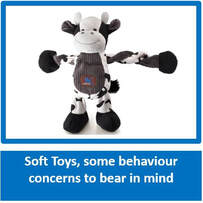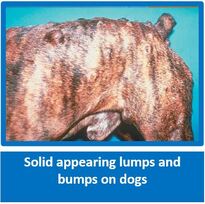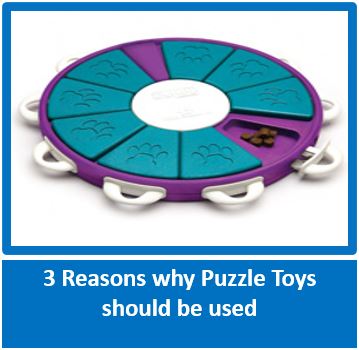
Please visit and LIKE / FOLLOW our Facebook Page and share with family, friends and on your own Facebook page, and ask them to share further – it is only by working together and sharing knowledge and education that we can improve the lives of dogs and assist owners. We do not inundate you with posts – an average of 5 per week, plus one Tip of the Week, and the odd informative post. Thank You!
Marking Behaviour - especially in dogs that are adopted or fostered
by Scotty Valadao - Canine Behaviourist - Friends of the Dog
by Scotty Valadao - Canine Behaviourist - Friends of the Dog
You are one of those wonderful people that foster or adopt a dog, and all is going well - he is going outside to eliminate, his behaviour is perfect, and then suddenly, out of the blue - .he pee's on the couch, and right in front of you - it doesn't stop there, he may pee on every object where he can lift his leg, and this does not exclude your bed! What on earth has happened?
When the new dog comes into your home, you can compare it to you landing in a strange country by yourself - you don't know the language, you don't know people, you may be much quieter than usual, and overall a bit overwhelmed - this is exactly what happens with the dog, with an additional stress factor that he cannot understand, as a human can, what is happening, or ask any questions
Not only has he left friends in the shelter, or his old home, he is surrounded by new smells, sounds, people, and very possibly other animals, and he has to learn to cope with all of this and find his place in this new environment. Initially dogs tend to be much calmer and quieter than usual, fall into the routine, mind their p's and q's, and overall, do not exhibit the same behaviour they would in a place where they were more relaxed. This is called the Honeymoon Period and is normally lasts between 14 - 21 days, however, can extend much longer with some dogs.
As the dog settles down, starts to feel more comfortable, not only will its own personality start to shine through (and often some behaviour concerns), a very common phenomena occurs - many dogs start marking - which had never happened before. Remember that dogs live via their noses, and urine marking is territorial behaviour - the dog is feeling more secure, and is 'claiming' the home as his, and, this also makes the dog feel more secure in himself.
If you are concerned that the dog may be urinating more than normal, then it could be a possible physical problem, and in this case, do contact your vet. Additionally, consider getting help from a canine behaviourist, many of them are doing Skype and phone consults at the moment. We do know that Kathy Clayton is doing phone consults, or alternatively get hold of a behaviourist from ABC of SA.
What to Do
First and foremost, understand why it is happening, the dog is not being spiteful, and, this behaviour can be changed. Here are some tips to assist:-
Increase mental and physical stimulation
During shut down, when we are denied our walks with our dogs, which is frustration not just for the dogs, but for us as well, we need to look for ways to supply more physical and mental stimulation. Here is a link to an article we have put up to help us all during shut down and we have also supplied a link below.
Stimulate your dog as much as possible with anything scent related - stuffed toys, puzzles, snuffle mats etc. There are some examples in the article link above.
Stay safe everybody and again. thank you to all the wonderful people that helped with fostering dogs during the recent crises!
When the new dog comes into your home, you can compare it to you landing in a strange country by yourself - you don't know the language, you don't know people, you may be much quieter than usual, and overall a bit overwhelmed - this is exactly what happens with the dog, with an additional stress factor that he cannot understand, as a human can, what is happening, or ask any questions
Not only has he left friends in the shelter, or his old home, he is surrounded by new smells, sounds, people, and very possibly other animals, and he has to learn to cope with all of this and find his place in this new environment. Initially dogs tend to be much calmer and quieter than usual, fall into the routine, mind their p's and q's, and overall, do not exhibit the same behaviour they would in a place where they were more relaxed. This is called the Honeymoon Period and is normally lasts between 14 - 21 days, however, can extend much longer with some dogs.
As the dog settles down, starts to feel more comfortable, not only will its own personality start to shine through (and often some behaviour concerns), a very common phenomena occurs - many dogs start marking - which had never happened before. Remember that dogs live via their noses, and urine marking is territorial behaviour - the dog is feeling more secure, and is 'claiming' the home as his, and, this also makes the dog feel more secure in himself.
If you are concerned that the dog may be urinating more than normal, then it could be a possible physical problem, and in this case, do contact your vet. Additionally, consider getting help from a canine behaviourist, many of them are doing Skype and phone consults at the moment. We do know that Kathy Clayton is doing phone consults, or alternatively get hold of a behaviourist from ABC of SA.
What to Do
First and foremost, understand why it is happening, the dog is not being spiteful, and, this behaviour can be changed. Here are some tips to assist:-
- Never, ever, shout or smack the dog for this behaviour. Not only will this make the dog more stressed, impact on your relationship, it can also make the dog more likely to engage in the behaviour! Attention to a dog, is attention, whether negative or positive.
- Management - close all doors around the house so that the dog cannot enter.
- Management - dog must be completely supervised during this transition period.
- Management - if the dog is focusing on a particular cushion for example - take the cushion away.
- Cleaning areas where soiled - never use commercial cleaner designed for kitchen or toilet use - many of these contain a degree of ammonia and/or chloride, which are present in dog pee - this results in the area smelling more like a toilet and the dog likely to go back again. Rather take an empty spray bottle, put in 2/3 water and 1/3 white vinegar - if you have some 'Citronella oil, add in a few drops. The majority of dogs do not like the smell of Citronella, and will stay clear of it. Spray this over the soiled area, then blot up with paper towels a few times until clean. Then spray on a little of your spray mixture again.
- Spray any areas you think the dog may target - getting the citronella/vinegar scent on them in advance, will make them less appealing to the dog.
- Retrain toilet etiquette - by now you should have a rough idea of when the dog does tend to eliminate on a daily basis before the marking started, but if you are not sure, try this:- take the dog out to eliminate first think in the morning and last thing at night. Take him out after eating and drinking, after playing etc. If you are unsure, then take him out once an hour until the behaviour changes. As we are all at home during shut down, this will be relatively easy to achieve.
- Make the toilet training a positive experience for the dog. Dogs will always do what works in their best interests, so show the dog how going outside to eliminate can be a rewarding experience - how too:-
1. Have a lot of high value treats and either pop in your pocket or have them conveniently placed by the door so that you can pick a few ups when you take the dog outside.
2. Call the dog in an excited tone of voice and use a particular cue such as 'hurry up's, wee, wee' etc.
3. Lead the dog to the area of the garden you want him to eliminate in - if other dogs, use an area that is used by them.
4. As the reach that area, again repeat the cue in an excited voice - if the dog starts smelling the area, then praise, 'good boy, good hurry ups'. The second the dog does eliminate, praise, 'good hurry ups', 'good boy' and immediately give a special treat.
5. If the dog does not eliminate, stay outside a while, then head inside again and keep an eye on him for any scenting, and then immediately repeat the above. This really does work, and keep it up for at least a few days, and don't stop the praising and treating for a while.
Increase mental and physical stimulation
During shut down, when we are denied our walks with our dogs, which is frustration not just for the dogs, but for us as well, we need to look for ways to supply more physical and mental stimulation. Here is a link to an article we have put up to help us all during shut down and we have also supplied a link below.
Stimulate your dog as much as possible with anything scent related - stuffed toys, puzzles, snuffle mats etc. There are some examples in the article link above.
Stay safe everybody and again. thank you to all the wonderful people that helped with fostering dogs during the recent crises!




